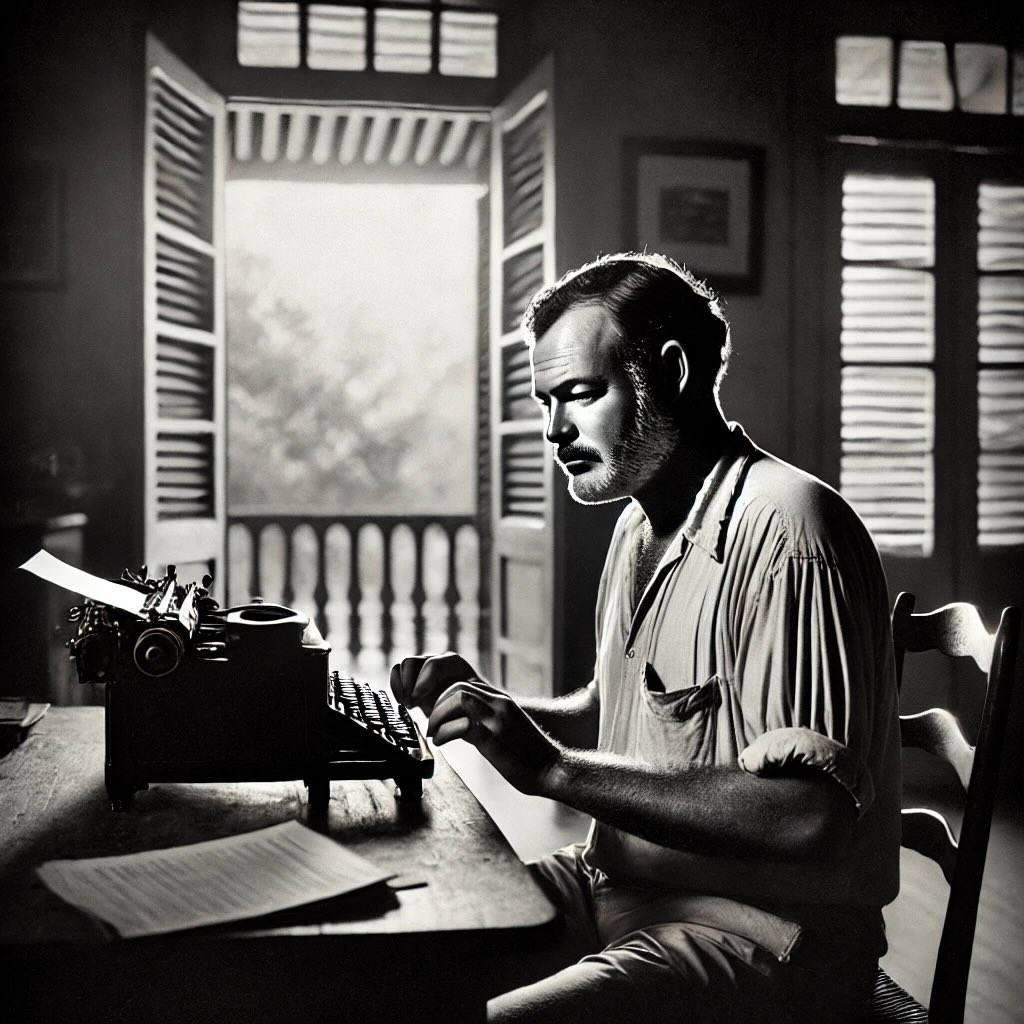A century after it first opened, Shakespeare and Company remains more than a bookshop; it’s a living testament to the power of words, memory, and belonging.
There are bookshops that sell books, and then there’s Shakespeare and Company. Each time I visit, as I did again recently, I’m
Tangled Prose is your bookish fix – from viral reads to cult classics. News, reviews, trends, and takes. Old favourites, and new finds. Always books.
Friday, 10 October 2025
Shakespeare and Company: Why Paris’s most famous bookshop still feels like a pilgrimage
Thursday, 21 August 2025
The quiet power of slow books
I was thinking about this as I slowly make my way through Lonesome Dove, by Larry McMurtry. It’s that kind of book. There are, of course, plenty of others.
Tuesday, 20 May 2025
Why Hemingway still matters
His influence on modern writing is unparalleled. He revolutionised the short story, made dialogue sharper and more lifelike, and proved that what you leave out is just as important as what you put in.
That’s why, if you are not already, you should be reading him. If you’re unsure where to begin or have questions, continue reading.
Sunday, 9 March 2025
Crafting the perfect opening lines of a novel
 Do you need a killer opening line for your novel? Or is there an alternative way to draw readers in right from the start?
Do you need a killer opening line for your novel? Or is there an alternative way to draw readers in right from the start?
I'm slightly obsessed by the opening lines of novels, and for me, the opening line isn’t merely about crafting a flashy hook; it’s about setting the tone, sparking curiosity, and providing readers with a reason to keep turning the pages. A brilliant first sentence generates intrigue and anticipation, drawing the audience into your story before they even realise it.
Thursday, 6 March 2025
A guide to reading Joan Didion
Joan Didion's writing is a masterclass in precision and insight. Her distinctive style, marked by pared-down, rigorous prose, captured the nuances of American life and personal introspection. As a leading figure in the New Journalism movement of the 1960s, Didion's work blended literary flair with journalistic integrity, offering readers a profound lens through which to view the world.
Wednesday, 26 February 2025
How to write a novel when you have no time
One of the biggest challenges for most writers is finding the time. In my 20s and early 30s, I could sit for hours and devote entire weekends to writing without distractions. But life changes. Responsibilities pile up, free time disappears, and you have to adapt.
For a while, I thought I needed long, uninterrupted stretches before I could write. Otherwise, what was the point? I told myself that anything less than 90 minutes was pointless—but in reality, I was just putting blockers in the way.
I’ve since learned that writing a novel doesn’t require marathon sessions. It can be done in snatches, even 20 minutes here, a paragraph or two there.
If you feel like you don’t have time to write, you’re not alone. But that doesn’t mean you can’t finish a book. I’ve spent ages thinking about this and collected some strategies and wisdom from authors on how to write a novel when your schedule is packed.
Wednesday, 12 February 2025
Dialogue that does double duty: How to advance plot and reveal character
Dialogue isn’t just there to make characters sound like they’re speaking. It’s one of the most powerful
tools in a novelist’s kit. The right line of dialogue can move the story forward, deepen a character’s personality, and sometimes even hint at future conflicts.
When your dialogue serves multiple purposes, it pulls more weight, making your prose more efficient and engaging. Here are four well-known literary examples of how you can achieve this.
Monday, 27 January 2025
Writing your novel: How to find your unique style
 Every novelist has a unique fingerprint, a way of telling stories that sets them apart. This is your writing style, your voice.
Every novelist has a unique fingerprint, a way of telling stories that sets them apart. This is your writing style, your voice.
It's what connects you to your readers and makes your novels memorable. But how do you find it? These tips that look at finding your voice and consistency are key to getting there.
Wednesday, 25 September 2024
I've always loved this Ernest Hemingway, quote from On Writing:
"My aim is to put down on paper what I see and what I feel in the best and simplest way."
A reminder that great writing doesn’t have to be overcomplicated. Clarity, truth, and emotional impact often come from simplicity—not from forcing complexity.
Whether you're writing fiction, essays, or anything in between, focus on saying what matters in the best and simplest way.






